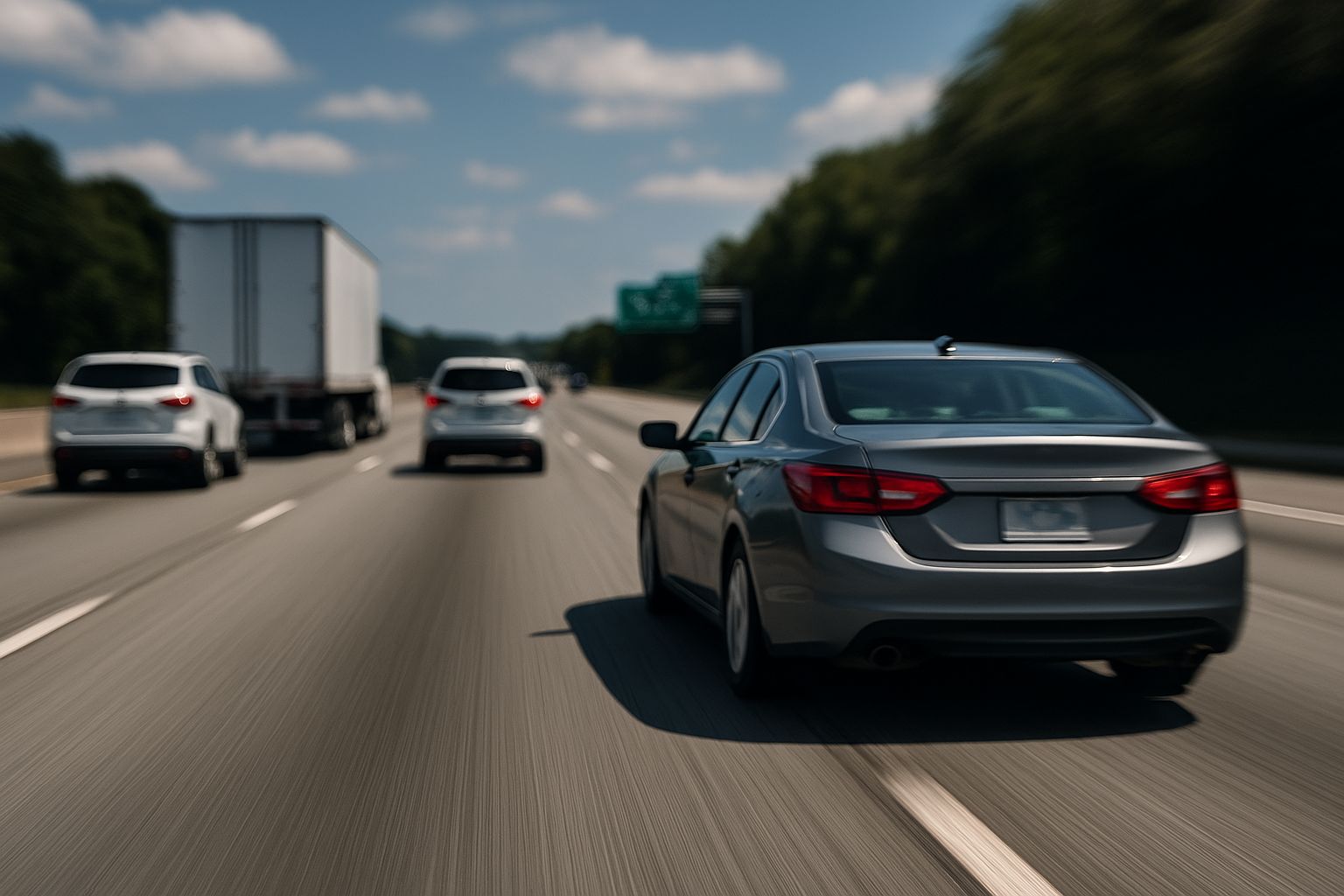How Speeding Leads to Serious Accidents on Georgia Roads
It rarely feels reckless. A few extra miles per hour, an empty lane, the feeling of control. But on Georgia roads, the gap between going with the flow and going too fast closes quickly. We have worked with families who barely remember the moment it happened, just the sound, the weight of impact, and everything that came after. Speed changes everything. Not just how a car moves, but how injuries happen, how damage spreads, and how justice gets pursued when someone else’s decision costs you everything.

What Speed Limits Are Really For
Those black-and-white signs are not suggestions. They are calculated for the road’s layout, its curves, its traffic, and what is nearby—pedestrians, crossings, weather exposure. Even on rural stretches of Georgia, a few extra miles per hour can mean a lot less control than you think. Some drivers treat limits as minimums. That choice affects everyone else on the road.
The National Highway Traffic Safety Administration (NHTSA) reports that speeding has played a role in roughly a third of U.S. traffic deaths for two decades. It is not just driving over the limit. It is driving too fast for fog, rain, a sharp curve, or even just traffic that is backed up unexpectedly.
Where Speed Becomes a Threat
Speed does more than move you quickly; it compresses time, shortens space, and erases options. At higher speeds:
- You do not stop in time. A car going 70 needs far more distance to stop than one going 50. And most drivers do not brake the moment danger appears—they hesitate. That is all it takes.
- You lose control more easily. Blowouts, curves, animals in the road—all harder to handle when your tires have less grip and your reactions are rushed.
- Collisions hit harder. The force involved does not double when speed doubles; it quadruples. That is why crashes at 70 mph do not look like fender benders.
- Road design stops protecting you. Guardrails, lane width, medians—they are built for expected speeds. Speed past that, and their effectiveness drops.
- And yes, there is an environmental cost. More fuel burned. More emissions released. Not the biggest concern in a crash, but not nothing either.
Why People Still Do It
Most drivers do not think they are being reckless. Some are late. Some are annoyed. Some are bored or feel overconfident in their vehicle’s handling. In real cases we have reviewed, the reasons include:
- Trying to make up time
- Weaving through traffic after long delays
- Testing the car’s power on open stretches
- Driving while angry, distracted, or just zoning out
- Being unfamiliar with posted speed zones
None of those excuses help when someone else ends up injured—or worse. And once a crash happens, the driver who chose speed usually says they did not think it would lead to this.
The Pandemic Made It Worse
When traffic dropped in 2020, fatal crash rates went up. Fewer cars meant more space, and more space led to more speeding. Even now, we see those habits linger. On highways, in suburban areas, even near schools. The feeling of “no one’s around” makes people forget: one wrong move still needs room to stop, and that room disappears fast.
What Georgia Law Says and What You Can Do
If you were injured by a driver going too fast, you may have grounds to seek compensation. That includes:
- Medical bills, from emergency care to ongoing rehab
- Lost income or diminished ability to work
- Pain, suffering, and reduced quality of life
- Damage to your car or property
- Permanent scarring or disability
- Emotional fallout that stays long after the crash
Proving someone was speeding does not always require a radar gun. Police reports, dash cams, black box data from the vehicle, eyewitness accounts—all of it helps.
Why It Pays to Have a Lawyer Who Knows Speed Cases
Speed-related crashes often cause more damage, more injury, and more pushback from insurers. They may claim you were partly at fault or that the driver was not really speeding. A car accident lawyer in Macon GA knows how to dig into the details, working with accident reconstruction experts, pulling data logs, and handling negotiations while you focus on recovery. If your case goes to court, they are ready.
They can:
- Secure records from the crash
- Coordinate with technical experts
- Handle all contact with insurers
- Present your case for the full compensation you are owed
- Represent you in court if necessary
Do Not Let Time Work Against You
Under O.C.G.A. § 9-3-33, Georgia gives most injury victims two years to file a personal injury lawsuit. That clock starts on the day of the crash. It does not pause for recovery, and it does not extend for back-and-forth with insurance. Waiting too long risks everything.
Talk to a Car Accident Lawyer in Macon GA Today
Speeding is a choice. So is accountability. If someone else’s decision to go too fast left you with injuries, bills, or grief, you do not have to carry it alone. At Prine Law Group, we hold reckless drivers responsible. We build strong claims. And we help victims get the support they need to move forward.
Call 478-257-6333 or fill out our secure online form to schedule a free consultation with an experienced car accident lawyer in Macon GA. The next step is yours, but we will take it with you.
